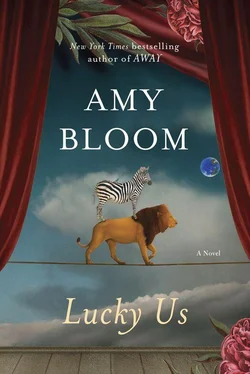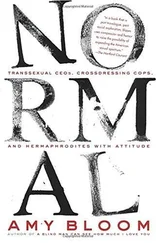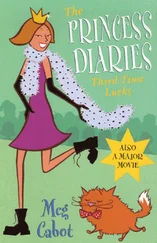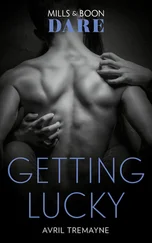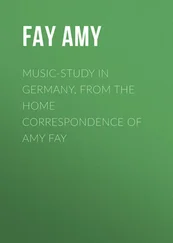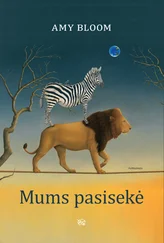Grusse und Kusse , kiddo.
Gus
January 1946
Zei gesundt , Evie!
This means Be in good health. The Yiddish is coming along. I am now the senior lecturer in English at the Free University of Trutzhain (there’s no junior lecturer). I make up job application forms and have people practice filling them out. I’ve explained that Americans are as punctual as Germans but more casual in their speech. I tell them someone will give them a nickname and they should accept it. I don’t tell them that even in America, they can round you up and keep you in with barbed wire. Why rain on their westward-ho parade? Everyone here will settle in the Bronx, Brooklyn, or Queens, places where I know the street addresses. My dead parents are now sponsoring twenty-seven people. Also, I’ve given everyone here an advanced degree from 1932, when that could have happened. I gave myself a certificate from Bonn (engineering) and an advanced degree from the University of Pforzheim (mathematics).
(Do you remember Pforzheim? Did those letters reach you? Do these? Exactly once, we’ve had mail. A woman got a letter from New Jersey. Everyone in the camp touched it, for luck.)
Six weddings and four babies in the last three months. Lev changed his name to Lew Stern. For a few days, he was Louis Smith, but since he couldn’t pronounce his own goddamn name (Louise Smeet, he kept saying), we decided to aim a little lower.
Two starving Jews, Mr. Cohen and Mr. Ellenbogen, are sitting on a park bench, sharing their last piece of bread.
They look across the park and a priest’s putting up a big sign in front of his church: CONVERT NOW AND WE’LL GIVE YOU $1,000!
“Oh, boy,” says Cohen. “I’ll do it!”
An hour later, he comes out, looking happy.
Ellenbogen says to him, “Did they give you the money?”
Cohen spits in his direction. “Is that all you people ever think about?”
Your Gus
February 1946
Dear Evie,
We have six soccer clubs. We’ve got one made up entirely of orphans, Die Yesomim, and another, A Schanda und a Charpeh (A Scandal and a Disgrace), for cripples. They are some tough, toothless SOBs and to watch a pair of them on crutches, scrambling down the field is to believe in … something. You tell me.
Yesterday, Mr. Schwartzwald, six blue numbers tattooed on his left arm, called Mr. Warburg, also with six blue numbers tattooed on his left arm, a Nazi. They were in Auschwitz together. They lay in a ditch next to the crematorium chimney and watched their wives and children go up in smoke. They crawled here, lame and sick with grief. They’ve recovered, so they can fight over our infirmary supplies. After Mr. Schwartzwald called Mr. Warburg a Nazi, Mr. Warburg called him an anti-Semitic SOB. I’m sure there is a phrase in Yiddish for this kind of thing, but I don’t know what it is.
Your Gus
RUTHIE POST WAS OUR SAVIOR. SHE HAD LOVED DANNY SINCE the beginning of third grade (or whatever it was she felt for him — she dragged him around town like a pull toy). Her friendship and Mrs. Post’s introductions to the small grocery store and the smaller candy store (making sure that Mr. Herman and Mr. Davis knew that although it seemed unlikely, I could and would pay my bills) made our new life on Old Tree Lane manageable. Ruthie was our guide to all aspects of Arrandale School’s fourth grade. What Ruthie said, went. She told Danny what kind of Buster Browns to wear, to keep his ears clean (Billy Moore did not and no one would sit with him, ever), and that it was important to start out with a lunch ticket in fourth grade. Apparently, everyone knew who had a card and would experience the satisfying exchange with the lunchroom monitor and the sharp sound of the paper punch, and who would not. According to Ruthie, if you established your high status in September, no one held it against you if you were brought low and forced to carry a lunch from home in November.
Ruthie Post had told Danny that the school bus came to our corner at 8:18. She told him that he’d be standing with three skinny little white girls (and she didn’t say white trash, because Mrs. Post would not have let her, but her eyelids drooped and we knew) and a Negro boy with thick glasses. Ruthie felt that the three girls were not the troublesome kind and that Danny’d have no trouble with Roger, the Negro boy (son of the idiot cousin). Ruthie told Danny to be nice, but not too nice. She said he should say hello to her cousin Roger but not sit with him on the bus. Ruthie told Danny that that would be bad for both of them. Danny asked Ruthie if she would be on the bus both ways and walk him home. Ruthie said, as I wanted to, and never did, “You’re big. You walk yourself home.” I was so grateful to have such a brutally plainspoken girl around, I promised Danny I’d wait for him with milk and cookies on his first day.
Francisco had promised to come help me with the finishing touches at the shop and I lay on the couch and stared at our blotchy, blooming ceiling until he came. I put the milk back in the refrigerator because I couldn’t buy any more milk if it went bad. I left the cereal bowls and Danny’s crusts and my own socks and shoes and old newspapers and Danny’s toys scattered around, like flares at an automobile accident. I was trying to put a shape to my life with Danny and I don’t know which one of us was more surprised and distressed at my failure. Every morning, I yanked the covers off him and said, Good morning, like I meant it, and watched him wash his face and brush his teeth and cheered him and hustled him through breakfast and out the door. Our day of crying on the couch in the carriage house was behind us. We were like the soldiers in Stalingrad, moving forward only because backward wasn’t possible.
21 Not in the Day and Not at Night
RUTHIE POST LIKED DANNY ACTON BETTER THAN HER GIRLFRIENDS and she liked his strange little family. Her own family was nothing special. Danny sat right next to her in Mr. Hoerger’s class and he was the only other person reading at the Bluebird level. Danny lived three blocks from Ruthie on Old Tree Lane. He had his own room, like Ruthie, and his grandfather lived there, and Danny’s aunt, who was raising him, and the Negro lady, who was like a visiting nurse. Ruthie’s mother had expressed a lot of interest in the Negro lady.
“I’m just asking you, Ruthie, is she a member of the family?”
Ruthie said she didn’t think so. She said that Clara Williams sang at the Nite Cap, which was the jazz club on the Island (and Ruthie said it the way the lady did, stretching out “the”). Ruthie didn’t say that she couldn’t say what color Clara Williams was, although Ruthie was sure that the lady was a Negro. She had Negro hair. Her hair looked and smelled like it had Glossine in it, which Ruthie’s mother used on all her ladies. Her skin was no color — it was the color of fat on a pork chop, the frizzled edge of a bug bite after your bath. One time, when Clara Williams was visiting, she didn’t close the bathroom door and Ruthie and Danny watched from the hall as she did her makeup. She patted her face all over with foundation, on a sponge. (“You wipe it off when you use your fingers,” Danny said. “Francisco said you shouldn’t even bother putting it on without a sponge, you’re just coloring your hands.”) She did her eyelids with a tiny brush and a bigger brush for her sparkly plum powder and she spat into a little black box to do her mascara. Danny started to explain and Ruthie punched him in the ribs. She knew. She watched her mother do it every morning. She did not need some fat little white boy telling her about eyelashes. Then Clara Williams did her rouge and they both watched.
Читать дальше
